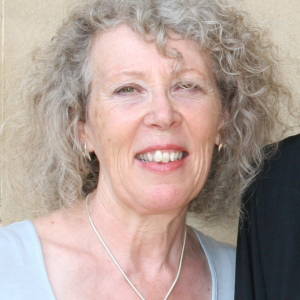Mono Monday: Distant
I was planning to go up onto the Cotswold Edge or possibly Dover's Hill today to take a landscape shot for this challenge - but it's a vile day, with a strong gusty wind blowing squally rain around in all directions. I'm not especially precious about my camera, but I don't think it's sufficiently heavy-duty to be out in those conditions - so it's another indoor shot today.
In the distant past of my childhood, this tankard sat on a window sill with pens and pencils in it. No-one ever discussed it, or even looked at it much - it was just a thing we had, and I took it for granted. Many years later, after I had been researching the family's history for quite a while, my mother asked if I would like the Butiment tankard; we carefully examined the engraving, probably for the first time in 50 years, before I brought it to my home, where it now lives on a book shelf in my study as a tangible reminder of my ancestors' lives.
William Butiment was born in 1823 in Wideopen, a village in Northumberland, England. He became a builder in Hartlepool, County Durham, where he married a woman called Alice Bunter. In 1852 he left England for the distant land of Australia with his wife and four year-old son, his parents, two unmarried brothers and one of his two sisters with her husband and children. In 1853 his father-in-law sailed out to Australia in his own small ship with his wife and a few other passengers. In 1854 his wife's sister emigrated to New Zealand with her husband and infant son, and for a number of years the two families travelled between Australia and New Zealand on a regular basis.
William died in Williamstown, Victoria on 17th May 1864, and was buried in the cemetery there two days later; his death certificate lists his occupation as innkeeper, and his cause of death as "gout in the stomach inducing vomiting, and extravasation of urine" - both of which sound highly unpleasant. His widow Alice and their son eventually returned to England on the S.S. Great Britain, along with her sister and nieces and nephews. Alice died in London in 1895; her son married one of his cousins, but it was a late marriage for both of them, and they had no children.
Alice was my 2x great-aunt, and as well as her husband's tankard I also own her much-travelled and extremely battered writing slope. When I look at these things I marvel at the spirit of adventure that induced people to face extraordinary danger and discomfort to voyage to a life of uncertainty on the other side of the world. For some the inducement was obviously the hope of escaping a life of hardship and poverty; but my ancestors were in business or in trade, and living relatively comfortable lives for the time, and it seems extraordinary to me that they were prepared to uproot themselves and leave everything that was familiar and understood. I certainly can't imagine having that kind of courage myself!
On an entirely unrelated note, could I ask UK-based blippers to please consider signing this petition, to pressure Birmingham City Council into protecting the status of the Library of Birmingham's photographic archive. Although, as Child Two pointed out to me, a photographic archive in Birmingham is of no use to me, since Birmingham is now a no-go area for people such as myself.

Comments
Sign in or get an account to comment.


